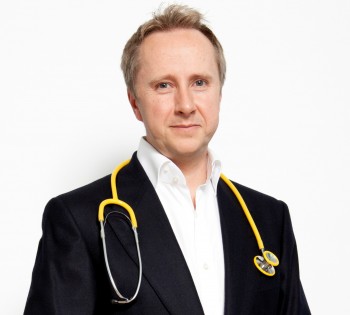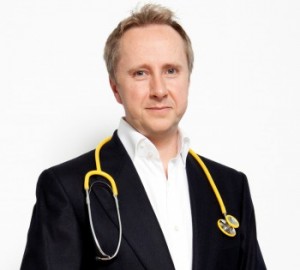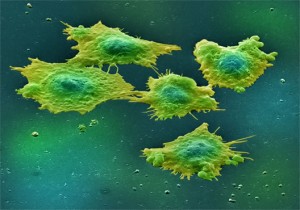PATIENTTALK.ORG: Ok so just to start, can you please tell me what diabetes is?
DR ROB HICKS: Well diabetes is a condition where basically there is too much glucose in the blood and the consequence of that is that the glucose damages the blood vessels in the circulation and it damages the nerves and if somebody has diabetes and it’s not properly treated or managed then there is a risk of damage to the circulation or the nervous system resulting in complications like heart attacks, stroke, kidney disease and damage to the skin around the feet and indeed blindness which is why we make a big effort in healthcare to encourage people to watch out for the warning signs and indeed to get themselves checked to see if they have got diabetes.
PATIENTTALK.ORG: And can you explain the differences between the various types: type 1, type 2, and type 3, 1.5 and gestational diabetes
DR ROB HICKS: Yeah there are different types of diabetes, type 1 diabetes is where the body for some unknown reason turns on itself, it damages the pancreas which is the organ in the body which makes insulin such that a person really doesn’t have any insulin or at least they have a very tiny amount and that’s why people with type 1 diabetes need to have insulin usually by injections in order for them to remain fit and healthy. Type 2 diabetes which is the more common form of diabetes, it affects around 90% of people who have got diabetes, it happens when either there isn’t enough insulin or the insulin that is there doesn’t work properly so the body becomes resistant to the insulin and you also mentioned gestational diabetes and that diabetes that essentially develops for a woman when she is pregnant and that makes up about 5% of women who are pregnant will develop gestational diabetes.
PATIENTTALK.ORG: And what that just be in the period of the pregnancy or would that then turn into a different type of diabetes?
DR ROB HICKS: For the most part women who develop gestational diabetes once they have had their baby the diabetes disappears however saying that they are at a greater risk at developing type 2 diabetes later on in life so it would again be important to keep an eye on.
PATIENTTALK.ORG: What are the warning signs of diabetes?
DR ROB HICKS: Well there are symptoms for many people that act as warning signs I mean particularly for type 1 diabetes, they are passing urine more often particularly at night, feeling very thirsty despite drinking lots of liquid, feeling very tired or indeed losing weight when you are not trying too and one of the places I work is a sexual health clinic and we often see that people are get recurrent bouts of thrush infection despite the right treatment it comes back and get treated then comes back again , they often have underlying diabetes, another possible symptom is the slow healing of wounds or blurred vision. Now for someone with type 1 diabetes these symptoms become quite obvious and can happen over a couple of weeks. The challenge is that with type 2 diabetes which tends to affect more mature adults so traditionally over the age of 40 although it is possible to get type 2 diabetes earlier in life often the symptoms are not so obvious so somebody might get diabetes but may not get any symptoms which is why we encourage people to get tested, in face the current figures suggest that just short of 600,000 people in the UK have diabetes but are not yet aware of it because they haven’t been diagnosed so again this is why it’s important to get this checked , particularly if you have got diabetes in the family , if your over weight and if you are in an specific ethnic group so if you from south east Asia , Chinese , African Caribbean or black African origin then the risk of diabetes is greater in these groups so again it should prompt you to have a chat with your doctor about whether you should be tested.
PATIENTTALK.ORG: And what are the complications of diabetes in particular foot ulcers and sight problems?
DR ROB HICKS: Yeah I mean diabetes that is not treated or managed properly the damage to the heart and circulation is likely to increase the risk of someone having a heart attack or a stroke, the damage to the kidneys a form of kidney disease can happen, in men diabetes can also be the cause of erectile dysfunction, you also mentioned foot ulcers and because they are harder to treat and harder to heal or sometimes can be ignored for a while by an individual may result in amputation being needed off a foot or a lower limb. You mentioned the issues with sight, if diabetes isn’t treated properly it can damage the back of the eyes can damage the retina and indeed if that’s not treated properly then that can result in blindness.
PATIENTTALK.ORG: What treatments are available and how effective are they?
DR ROB HICKS: Well nowadays we have a host of treatments available, so everyone will be offered for type 1 insulin because they need it as they are not making any or are making very tiny amounts. For type 2 diabetes they will be advised to follow a healthy lifestyle such as losing some weight and being more active and there are different ways of achieving that so somebody might choose to use a health app for example. Who did a health report make health apps to help try and encourage people to adapt their lifestyle to healthy one and then there’s medications for people with type 2 diabetes and indeed some people with type 2 diabetes also need insulin to keep the condition under control.
PATIENTTALK.ORG: And what are the best ways of preventing diabetes/
DR ROB HICKS: With type 1 diabetes you can’t prevent it but thankfully with type 2 diabetes many people can prevent it and the best way really is to maintain a healthy weight, so lose weight that you need too to achieve a healthy weight and particularly try to get rid of the fat around your middle around your tummy as that alone increases the risk significantly of somebody being diagnosed with type 2 diabetes.
PATIENTTALK.ORG: And what advice would you give to somebody who has just been diagnosed with diabetes?
DR ROB HICKS: I think the advice I would give to somebody who has just been diagnosed with diabetes is to take it seriously, make sure that you seek the advice of your doctor / diabetes nurse, know that you can be in control of it I think I important and the control of it is extremely important to avoid the potential complications and if it means losing weight as it often does then choose a way that works for you , choose a way that suits you so that may be going for a brisk walk a day or a bike ride, it might be using a health app to motivate you and help you in a fun way monitor how well you are doing. I think that the bottom line increasingly we are seeing many people who are not following a healthy lifestyle I mean the Noom Report showed that around 1 in 3 people said that they never exercise and almost 2 in 5 said that they would wait till they have a health scare or a warning from their G.P before they did anything healthy or adopt a healthy lifestyle, I always say to people don’t wait get onto it and do it now whether you have got diabetes or not.
PATIENTTALK.ORG: That’s fantastic, Rob is there anything you would like to add at all?
DR ROB HICKS: I mean if people want to find out more about diabetes or whether they should be tested then obviously they can have a chat with their G.P or if they want to find out about Noom Then they can log onto noom.com/diabetes.
PATIENTTALK.ORG: Wonderful thanks so much for your time and for answering all of those questions.
DR ROB HICKS: Thank you, bye bye.




